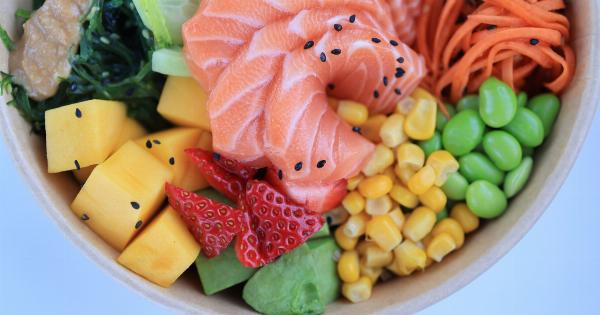Hearing loss is a common condition that affects millions of people worldwide.
While factors like aging, genetics, and exposure to loud noise play a significant role in hearing loss, recent studies have suggested that our diet may also impact our auditory health. Incorporating a variety of fruits and vegetables into our meals not only promotes overall wellness but could also potentially enhance our hearing abilities.
Let’s explore the relationship between consuming these nutritious foods and their positive impact on hearing.
The Nutritional Value of Fruits and Vegetables
Fruits and vegetables are powerhouses of essential vitamins, minerals, and antioxidants that are vital for maintaining optimal health. They are low in calories, fat-free, and packed with fiber, making them an excellent choice for a well-balanced diet.
Additionally, these natural wonders contain high levels of key nutrients that contribute to hearing health.
Vitamin C and Enhanced Auditory System
Vitamin C, commonly found in citrus fruits such as oranges, grapefruits, and strawberries, is not only known for boosting the immune system but also for its potential benefits in maintaining a healthy auditory system.
Several studies have shown that vitamin C may help prevent age-related hearing loss by combating oxidative stress caused by free radicals. These unstable molecules can damage the delicate hair cells in the inner ear responsible for transmitting sound signals to the brain.
Vitamin E’s Protective Effect on Hearing
Vitamin E, primarily obtained from sources like spinach, almonds, and sunflower seeds, has been linked to a reduced risk of developing hearing loss.
This essential antioxidant helps protect against oxidative damage caused by exposure to excessive noise, environmental toxins, and aging. By neutralizing harmful free radicals, vitamin E contributes to safeguarding the auditory system’s delicate structures.
Boosting Hearing with Omega-3 Fatty Acids
Omega-3 fatty acids are a type of polyunsaturated fats that are essential for our body’s overall health.
Foods rich in omega-3 fatty acids, such as salmon, walnuts, and flaxseeds, have been associated with several health benefits, including improved brain function and cardiovascular health. Recent studies have also indicated that a diet rich in these healthy fats can aid in reducing the risk of age-related hearing loss and preserve auditory function.
The Role of Antioxidants in Hearing Health
Antioxidants are substances that protect our cells from damage caused by harmful molecules called free radicals. Colorful fruits and vegetables, such as blueberries, tomatoes, and carrots, are excellent sources of antioxidants.
By neutralizing free radicals, antioxidants help reduce inflammation and oxidative stress, protecting the delicate structures of the inner ear.
Specific Fruits and Vegetables for Optimal Hearing Health
While consuming a variety of fruits and vegetables is crucial for overall health, certain foods have shown notable benefits in promoting auditory well-being:.
Spinach and Kale for Extra Protection
Leafy greens like spinach and kale are packed with nutrients like magnesium, folate, and antioxidants that contribute to optimal hearing health.
Magnesium aids in dilating blood vessels, improving blood flow to the inner ear, and protecting against noise-induced hearing loss. Folate, on the other hand, contributes to healthy blood circulation and reduces the risk of age-related hearing loss.
Oranges and Berries for Vitamin C
Oranges and berries are not only refreshing and delicious but also excellent sources of vitamin C. By including these fruits in your diet, you can enhance your immune system and potentially guard against age-related hearing loss.
The antioxidative properties of vitamin C help combat oxidative stress and minimize damage to the delicate hair cells in the inner ear.
Carrots for Beta-Carotene
Carrots, known for their high beta-carotene content, are not only beneficial for maintaining good eyesight but also help support auditory health.
This essential nutrient gets converted into vitamin A in the body, aiding in the production of the pigment required for good vision. Additionally, it can contribute to maintaining the proper functioning of the cochlea—a spiral-shaped structure in the inner ear responsible for converting sound signals into electrical impulses.
Pomegranates for Vascular Health
Pomegranates are rich in antioxidants and essential nutrients that can promote vascular health. Good blood flow is crucial for maintaining the overall health of the auditory system.
By improving circulation, pomegranates can potentially prevent damage to the hair cells in the inner ear due to a lack of oxygen and nutrients.
Conclusion
While improving hearing health and reducing the risk of age-related hearing loss is a complex process influenced by various factors, consuming a diet rich in fruits and vegetables can contribute positively to auditory well-being.
The combination of vitamins, antioxidants, and minerals found in these natural wonders provides valuable support to protect against oxidative stress, reduce inflammation, and enhance blood flow to the inner ear. So, let’s make it a habit to incorporate an array of colorful and nutritious fruits and vegetables into our daily meals for overall wellness and to boost our hearing abilities.































